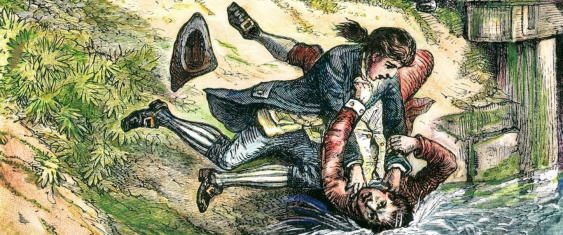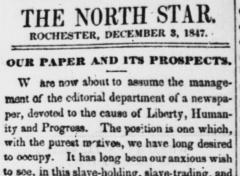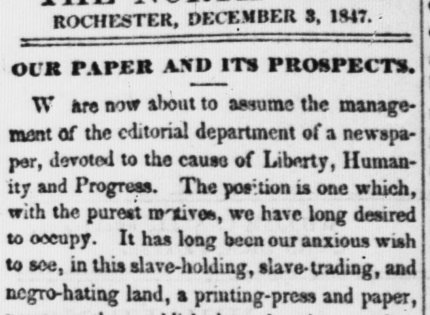
HISTORY ONLINE 24/7/365
EARLY AMERICA
Early America in U. S. History 1
Declaring Indepedence was the easy part. Getting 13 states to work together toward common goals was much harder, with a weak alliance that barely got them through the Revolution, and the struggle to create a second Constituion that would be strong enough to work, but not strong enough to abuse the people. This page features resouces to understand key individuals, events, and legislationResources:
Articles of Confederation
WebGuide to the Articles of Confederation at the Library of Congress Learn more about the Articles of Confederation The Articles of Confederation was a constitution written during the American Revolution to establish the powers of the new national government. Articles of Confederation ● Provided for a weak national government ● Gave Congress no power to tax or regulate commerce among the states ● Provided for no common currency ● Gave each state one vote regardless of size ● Provided for no executive or judicial branches Confederation to Constitution · Weaknesses in the Articles of Confederation led to the effort to draft a new constitution. The Constitutional Convention · State delegates met in Philadelphia and decided not to revise the Articles of Confederation but to write a new constitution. · George Washington was elected president of the Constitutional Convention. · Delegates debated over how much power should be given to the new national government and how large and small states should be represented in the new government. · The structure of the new national government included three separate branches of government: – Legislative – Executive – Judicial · The Great Compromise decided how many votes each state would have in the Senate and the House of Representatives. · The Constitution was signed at the end of the convention. Ratification of the Constitution · A minimum of nine of the thirteen states had to vote in favor of the Constitution before it could become law. The Bill of Rights · Based on the Virginia Declaration of Rights (George Mason) and the Virginia Statute for Religious Freedom (Thomas Jefferson) These first ten amendments to the Constitution provide a written guarantee of individual rights (e.g., freedom of speech, freedom of religion). Outcomes of the Articles of Confederation ● First constitution of the United States ● The Northwest Ordinance • Outlined the process for admitting a new state to the Union • Outlawed slavery in the new territories FIRST FIVE PRESIDENTS: All of the first five presidents were Virginians except John Adams. Accomplishments during the first five presidencies · George Washington – Federal court system was established. – The Bill of Rights was added to the Constitution of the United States of America. – Plans were created for development of the national capital in Washington, D.C. Benjamin Banneker, an African American astronomer and surveyor, helped complete the design for the city. · John Adams – A two-party system emerged during his administration. · Thomas Jefferson – He bought Louisiana from France (Louisiana Purchase). – Lewis and Clark explored new land west of the Mississippi River. · James Madison – The War of l812 caused European nations to gain respect for the United States. · James Monroe He introduced the Monroe Doctrine warning European nations not to interfere in the Western Hemisphere.

NEW RESOURCE:
The Library of Congress has just
made much of the newspaper
writing of Fredrick Douglass
from 1847-1874 available
online! Click to check it out and
discover for yourself just how
persuasive his writing was!
Movie Tickets




































HISTORY ONLINE 24/7/365
mrbower.com
EARLY AMERICA
Early America in U. S. History 1
Declaring Indepedence was the easy part. Getting 13 states to work together toward common goals was much harder, with a weak alliance that barely got them through the Revolution, and the struggle to create a second Constituion that would be strong enough to work, but not strong enough to abuse the people. This page features resouces to understand key individuals, events, and legislationResources:
Articles of Confederation
WebGuide to the Articles of Confederation at the Library of Congress Learn more about the Articles of Confederation The Articles of Confederation was a constitution written during the American Revolution to establish the powers of the new national government. Articles of Confederation ● Provided for a weak national government ● Gave Congress no power to tax or regulate commerce among the states ● Provided for no common currency ● Gave each state one vote regardless of size ● Provided for no executive or judicial branches Confederation to Constitution · Weaknesses in the Articles of Confederation led to the effort to draft a new constitution. The Constitutional Convention · State delegates met in Philadelphia and decided not to revise the Articles of Confederation but to write a new constitution. · George Washington was elected president of the Constitutional Convention. · Delegates debated over how much power should be given to the new national government and how large and small states should be represented in the new government. · The structure of the new national government included three separate branches of government: – Legislative – Executive – Judicial · The Great Compromise decided how many votes each state would have in the Senate and the House of Representatives. · The Constitution was signed at the end of the convention. Ratification of the Constitution · A minimum of nine of the thirteen states had to vote in favor of the Constitution before it could become law. The Bill of Rights · Based on the Virginia Declaration of Rights (George Mason) and the Virginia Statute for Religious Freedom (Thomas Jefferson) These first ten amendments to the Constitution provide a written guarantee of individual rights (e.g., freedom of speech, freedom of religion). Outcomes of the Articles of Confederation ● First constitution of the United States ● The Northwest Ordinance • Outlined the process for admitting a new state to the Union • Outlawed slavery in the new territories FIRST FIVE PRESIDENTS: All of the first five presidents were Virginians except John Adams. Accomplishments during the first five presidencies · George Washington – Federal court system was established. – The Bill of Rights was added to the Constitution of the United States of America. – Plans were created for development of the national capital in Washington, D.C. Benjamin Banneker, an African American astronomer and surveyor, helped complete the design for the city. · John Adams – A two-party system emerged during his administration. · Thomas Jefferson – He bought Louisiana from France (Louisiana Purchase). – Lewis and Clark explored new land west of the Mississippi River. · James Madison – The War of l812 caused European nations to gain respect for the United States. · James Monroe He introduced the Monroe Doctrine warning European nations not to interfere in the Western Hemisphere.

NEW RESOURCE:
The Library of Congress has just
made much of the newspaper writing
of Fredrick Douglass from 1847-1874
available online! Click to check it out
and discover for yourself just how
persuasive his writing was!
Movie Tickets




































































